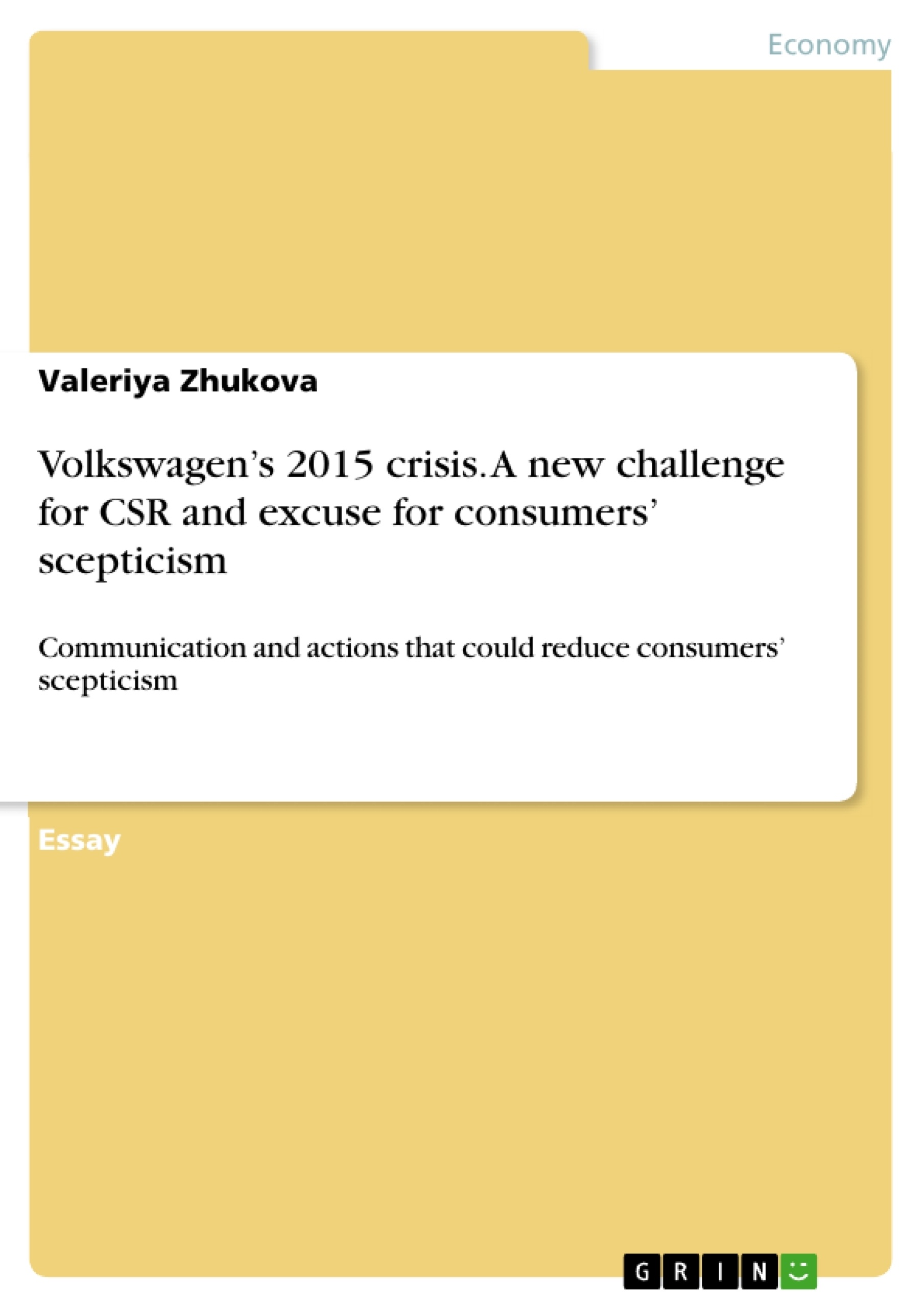The aim of this paper is to discuss some reasons why consumers remain sceptical about corporate social responsibility actions and motives, and how to diminish scepticism towards a company and its CSR actions. Moreover, based on the example of Volkswagen’s ongoing crisis there is a new challenge for CSR and many companies.
This paper will be divided into three parts. The first part gives a brief overview of CSR and illustrates the attention of consumers to it and explains why they are sceptical towards corporate social responsibility and certain inner motives of profit-based organisations. The second part highlights evidence about the types of communication that could be effective in reducing scepticism and stresses how people react to companies’ misbehaviour. The third part emphasizes a brief summary regarding the outcome of Volkswagen’s 2015 crisis, and highlights the new demands of consumers and society towards companies and their CSR.
Inhaltsverzeichnis (Table of Contents)
- Introduction
- Perception of corporate social responsibility by consumers and why are consumers sceptical about CSR?
- Communication and actions that could reduce consumers' scepticism
- Volkswagen's 2015 Crisis. A new challenge for CSR and excuse for consumers' scepticism.
- Conclusion
Zielsetzung und Themenschwerpunkte (Objectives and Key Themes)
This paper aims to explore the reasons behind consumer scepticism towards corporate social responsibility (CSR) initiatives, and to discuss strategies for diminishing this scepticism. The paper also examines the impact of Volkswagen's 2015 crisis on CSR and consumer trust.
- Consumer perception of CSR
- Factors contributing to consumer scepticism
- Effective communication strategies for reducing scepticism
- The Volkswagen crisis and its implications for CSR
- The role of corporate misbehaviour in shaping consumer trust
Zusammenfassung der Kapitel (Chapter Summaries)
- Introduction: This section provides an overview of CSR and its importance in today's business environment. It highlights the growing interest in CSR among consumers and the challenges companies face in communicating their social responsibility efforts effectively.
- Perception of corporate social responsibility by consumers and why are consumers sceptical about CSR?: This chapter examines the factors that influence consumer perception of CSR and explores the reasons behind consumer scepticism. It discusses the impact of corporate scandals and the importance of building trust.
- Communication and actions that could reduce consumers' scepticism: This section focuses on effective communication strategies for reducing consumer scepticism. It explores the role of transparency, authenticity, and stakeholder engagement in building trust.
- Volkswagen's 2015 Crisis. A new challenge for CSR and excuse for consumers' scepticism.: This chapter analyzes the impact of the Volkswagen emissions scandal on consumer trust in CSR. It examines the implications of corporate misbehaviour for companies and the future of CSR.
Schlüsselwörter (Keywords)
This paper focuses on the key concepts of corporate social responsibility (CSR), consumer scepticism, communication strategies, corporate misbehaviour, and the Volkswagen emissions scandal. It explores the relationship between these concepts and their impact on consumer trust and corporate reputation.
- Quote paper
- Valeriya Zhukova (Author), 2016, Volkswagen’s 2015 crisis. A new challenge for CSR and excuse for consumers’ scepticism, Munich, GRIN Verlag, https://www.grin.com/document/349994




